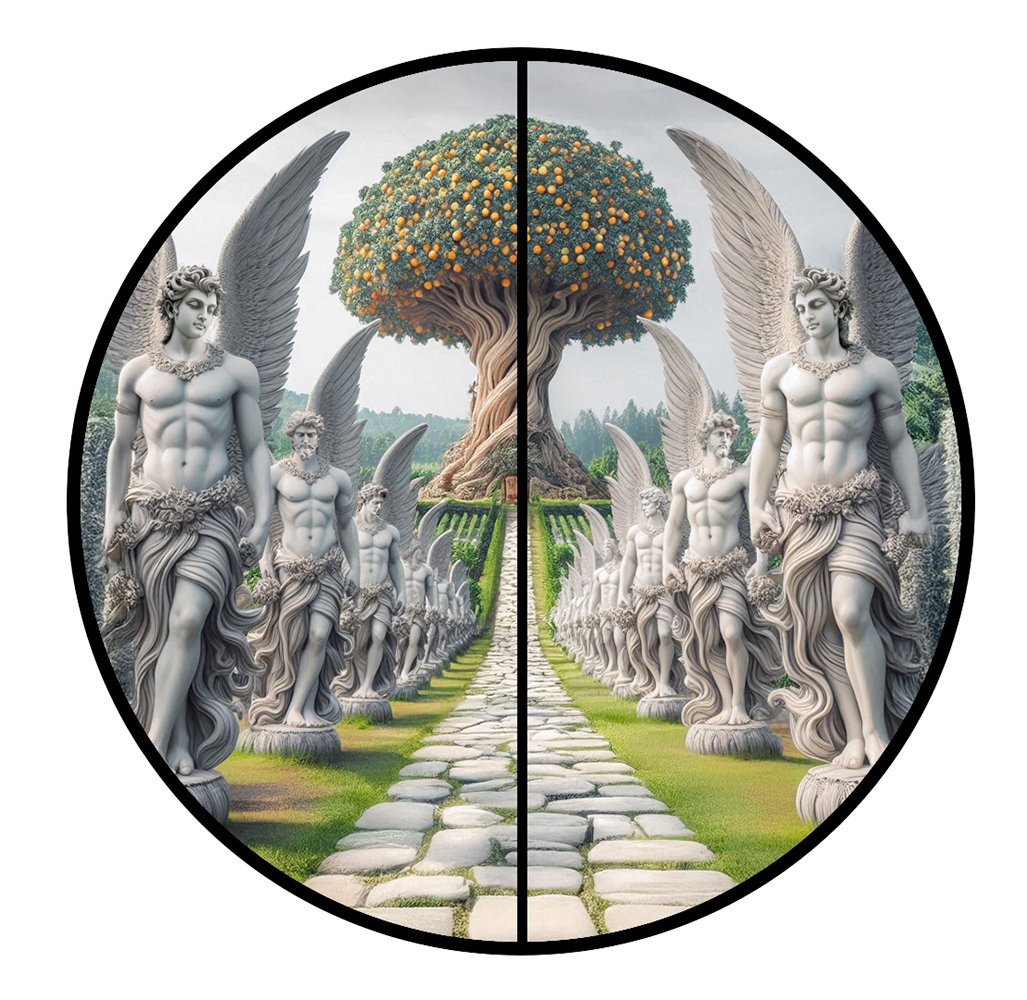 Genesis 3:24
Genesis 3:24

Second Adam
And the self eternal Man ("The Adam"), he is driving out, and he is causing the self eternal Cherubim to encamp from the front of the Protected-Garden of Delight and the self eternal flame of the Sword of the One Who Overturns Herself to keep watch over the self eternal road of the Wood of the Living ones.148
None
And He drove the man out. And He lodged the cherubs at the east of the Garden of Eden, and the flaming sword whirling around to guard the way of the Tree of Life.
He drove out the man, and at the east of the garden of Eden he placed the cherubim and a flaming sword that turned every way to guard the way to the tree of life.
And he cast out Adam and caused him to dwell over against the garden of Delight, and stationed the cherubs and the fiery sword that turns about to keep the way of the tree of life.
Footnotes
| 148 | Hebrew ויגרש את האדם. The eternal self Adam is driving out/he is driving out the eternal self Adam. Because the meaning of את was missed and interpreted as merely an accusative mark or direct object marker and not understood as the "alpha-omega" eternal self. The Adam (second one) driving out Adam (the first one). |
| 149 | Cherubim. Plural of an unknown number. These are not what you think they are. The word shows up as speaking of a people in Ezra 2:59 and Nehemiah 7:61 as Haolim, The Ascending ones, “And these are the Ascending-ones from Mound of Salt, Mound of Craftsman, Cherub, Master, and Utterance, and they were not able to disclose the house of their father and their seed, if they were from Israel.” These place-names are Babylonian from which Solomon’s slaves (Neh. 7:57) “went up”. |
| 150 | Hebrew החרב המתהפכת. Definite articles. Feminine singular participle Hithpael verb of to turn, change, turn about/over, i.e the Sword of the One-who-turns-herself. Like a wheel. The same participle is used in a picture of a loaf of bread, which was round, in Judges 7:13, “And as Gideon arrived, a man was telling his friend about a dream. ‘Behold, I had a dream,’ he said, ‘and I saw a loaf of barley bread come turning-over into the Midianite camp. It struck the tent so hard that the tent turned-over [haphak] and collapsed.’” |
| 151 | Strong’s #1870, derek. Way, road, distance, journey. See note on Genesis 3:24. This word is the basis of Jesus’ and the Apostle’s use of the term “the way/road”. The word here has the “mark of the accusative” prefixing it meaning that it is not so much the wood that is being guarded but rather the road of the wood is being guarded. Notice how the text doesn’t supply the prepositions to or toward the wood. |